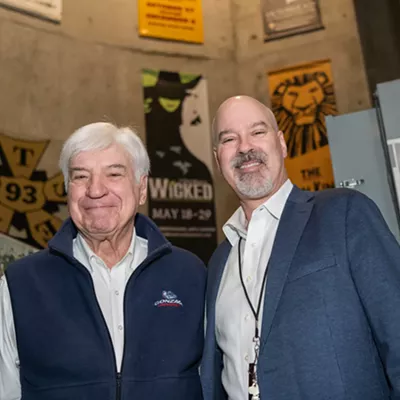Call it the fog of summer, but America has tuned out the bad news coming out of Iraq. We're even watching soccer instead of paying attention to the tragic coda to our decade-long Middle Eastern adventure.
We spent at least $1.7 trillion on invading and occupying Iraq. We lost nearly 4,500 of our finest men and women; more than 110,000 Iraqis were killed, according to the AP. Now all hell is breaking loose and the Iraqi Army we spent billions to train melted at the first sign of trouble. Oh, and Dick Cheney and his cronies are back on TV saying it's not their fault. Apparently you can be spectacularly wrong ("We'll be greeted as liberators"), and we'll just keep asking your opinion.
In the Middle East, we should have learned that it's often more about religion than nationality. Saddam Hussein was a Sunni Muslim, the minority in Iraq, and he brutalized the majority Shia population. We fired all the Sunnis from the government; later, a Shia — Nouri al-Maliki — was elected prime minister and has done his best to become the Shia version of Saddam. Now we're forced to back al-Maliki, while scrambling to figure out how to stop the Sunni ISIS insurgents.
Also, Iran is mostly Shia, as is the ruling family of Syria, where we are backing the Sunni insurgents who are at least philosophically connected to ISIS. Yes, we are taking both sides in what looks more and more like one big religious conflict. Oh, and the Israel-Palestine fight is erupting again.
In his recent op-ed in the Wall Street Journal, Cheney charges that Obama is, in a favorite GOP talking point, "leading from behind." I'm fine with that. Send troops again? Really? You won't hear anyone running for office advocate for more troops — only 16 percent of Americans supported the idea when asked last month. And we just spent a decade learning that more troops and money can't fix Iraq.
Some humility to our foreign policy would be a welcome change. As Steve Coll put it in the New Yorker, "The Middle East has a way of exposing the vanities of all foreign-policy thinkers."
Still, there are functioning nations in the region — perhaps not functioning in the way we would prefer, but Jordan, Saudi Arabia and even Iran are relatively stable. The best we can hope for is to work with the neighbors to quell the Sunni-Shia conflict and find a path to something like peace. If that's leading from behind the scenes, so be it: That's the foreign-policy box Cheney and company left us in.♦

























